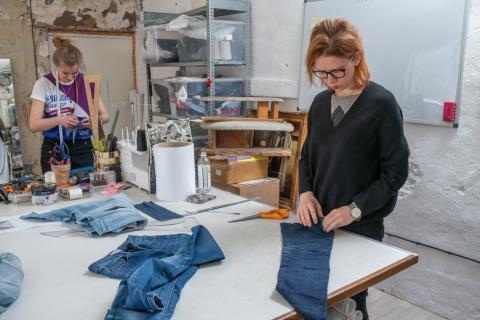UPMADE® by Reet Aus turns textile leftovers from cost into value
The Reet Aus mission is to minimise the ecological footprint of one of the world's most contaminating business - the fashion industry - by applying industrial upcycling, which means producing clothing from pre-production leftover fabrics. The fact that no extra fabric is produced for Reet Aus garments makes them carbon-neutral.
Moreover, as virgin fabric is used, Reet Aus makes sure that the leftover fabric does not contain harmful chemicals and that production is socially responsible, meets workplace safety requirements, and does not resort to child labour, of course.
This radically non-wasteful new production process is based on a scientific core methodology called UPMADE®, which has been developed by designer and founder Reet Aus in cooperation with the Stockholm Environment Institute Tallinn Center. This methodology is applied when producing clothing for the Reet Aus trademark and other brands in certified factories. UPMADE® enables brands and manufacturers to apply its industrial upcycling method, thus providing them with certification.
A fully circular economy produces zero waste and pollution by design. This is an ideal that the UPMADE® method supports in a real and practical way. Traditional clothing manufacturing creates an average 18 % of textile leftovers. The UPMADE® method closes the loop by applying upcycling on an industrial scale and reducing the amount of textile leftovers, thus turning this 18 % from cost into value.
- Reet Aus designs and produces clothes with almost no environmental footprint, with the aim of reducing fabric waste, and manages to do so up to 80%.
- Each garment in the Reet Aus collection saves - on average - 75% water and 88% energy.

